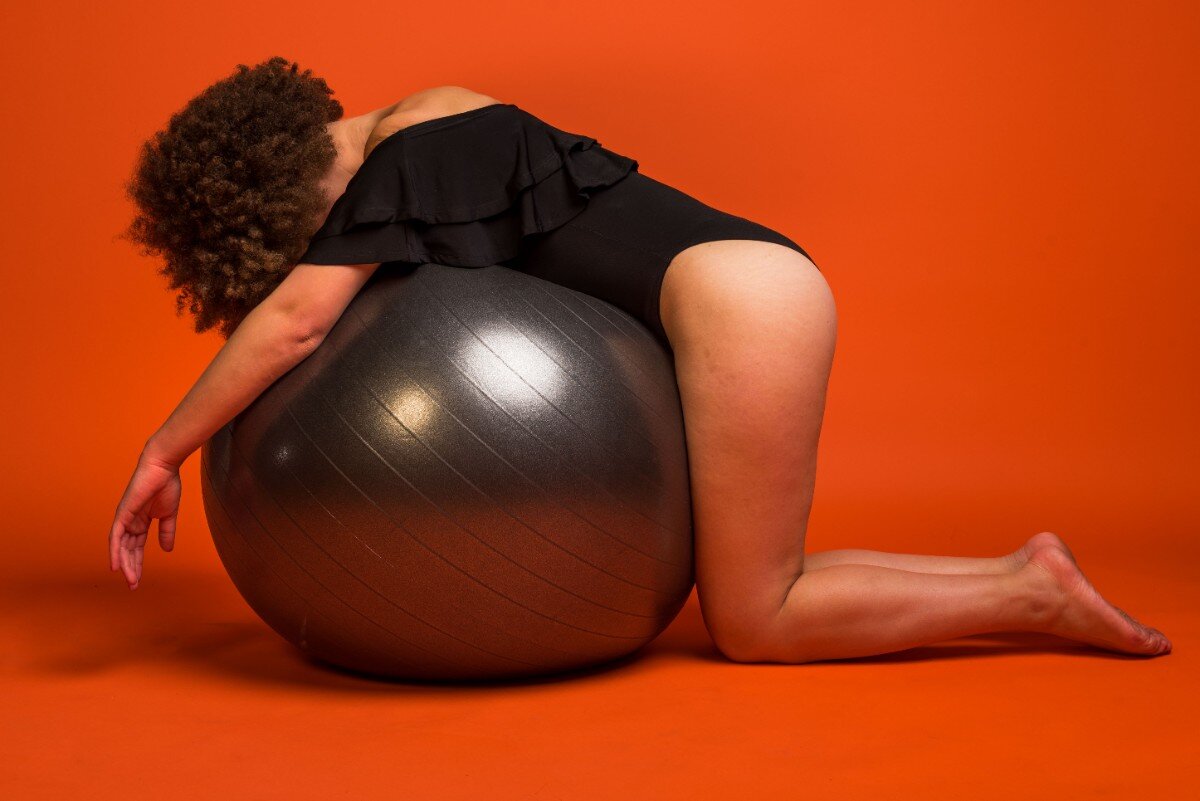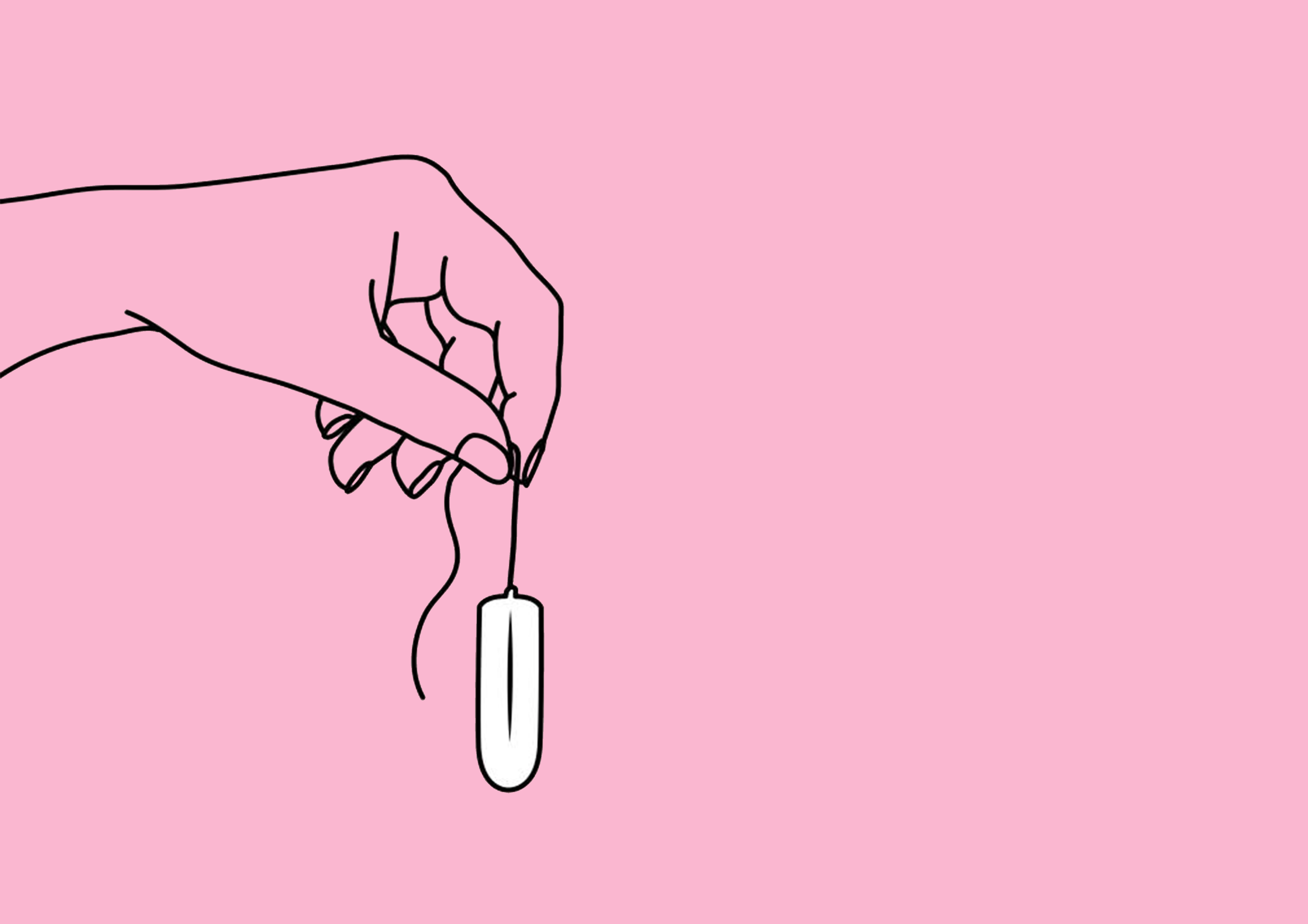Bloody Brilliant: Underrated Symptoms That Your Period's To Blame For
Periods aren’t exactly wallflowers. When they’re ready to arrive, they arrive with a bang - and an entourage of symptoms announcing their imminent arrival.
Admittedly, your period might be a meek little thing that suddenly appears in your knickers without so much as a twinge of the uterus muscles - if that’s the case, I envy you. For most of us, however, something clues us in. Sure, we may not always twig that the irrational rage we’ve been feeling for the last few days is actually because we’re experiencing a plummet in the levels of our reproductive hormones and our period is due, or remember that the reason we think our boobs look banging today is because they have, in fact, gone up half a cup size and - you guessed it - our period is due. But if you’re aware of your cycle and keeping your eyes peeled for signs, you’ll see them.
Bigger boobs, raging mood swings, period pain… these are all pretty common period or PMS symptoms. They’re the ones that your friends will just get - you won’t have to explain that “I have cramps” means you’re on your period, or what it feels like when your boobs swell up (sore, usually), or why your emotions feel so out of control. They’ll just know, because they’ve been there too.
But what about the other symptoms? The lesser-known harbingers of bloody knickers? Here are our top underrated period symptoms and why they happen (spoiler alert: they’re all totally normal and nothing to worry about).
Weight gain or bloating
If your jeans are feeling a bit tighter or your belly feels uncomfortably bloated towards the end of your cycle, it’s likely not ‘just in your head’ because your PMS moods have thrown your self-esteem off a cliff. Your body is actually going through a lot of changes, and it’s common to bloat and gain some weight before your period. It’s also absolutely nothing to worry about.
Your body doesn’t just start to expel blood when you’re menstruating. Your uterus lining builds up to about 18mm thick and your uterus starts to contract more noticeably than usual - though not to the degree it will when it actually starts to shed and you begin to bleed. This affects your digestive system. Food moves slower through your body and your bowel movements become affected too - so if you tend to feel pretty gassy right before your period in addition to all that fun bloating, that’s also totally normal.
How can you combat this? Try eating bananas, leafy greens, and other foods that are high in potassium and magnesium to lessen your water retention. Trying to reduce your salt and sugar intake will also help hugely as salt, in particular, contributes to water retention. I know, I know, easier said than done, but you can always reach for some trusty dark chocolate, which is high in magnesium and has the added bonus of helping out your period pain too!
Exercise becomes harder
…And not just because you’re feeling sluggish because there’s blood flowing out of you. You’ll literally experience more shortness of breath right before your period than at other times of your cycle. You can thank progesterone, AKA the sedating hormone, for that one. It peaks roughly at the end of week three in an average 28-day cycle and is responsible for some of us (myself included) feeling like our ‘PMS’ lasts a full two weeks.
ohne
Research shows that people who get periods actually recover from muscle damage more slowly in the run-up to their period than at any other time of their cycle. So if you are still hitting the gym and finding your energy levels way more depleted than usual afterwards - or maybe just finding yourself totally out of breath after running up the stairs at home - don’t sweat it. You haven’t suddenly become more unfit, your body is just going through it’s normal changes throughout the menstrual cycle.
My advice? Don’t push yourself. Listen to what your body needs. You’ll probably benefit from some light movement because, if Elle Woods taught us anything, it’s that endorphins make you happy. Depending on how much energy you have, you could try going for a walk, doing some restorative yoga, or even going swimming.
Changes to your sex drive
Many of my friends report their sex drive going way up when they’re on their period, but I can report with absolute certainty that for me, it’s the total opposite. Everything from hormones to external stimuli can have a huge impact on our sex drive and, with all of our bodies being as unique as our libidos, it’s only natural we respond to the fluctuations of the menstrual cycle a little differently.
Whichever camp you fall into, science, as ever, has an answer for you. If you’re suddenly horny af right before or during your period, it could be because the increased blood flow to the genitals stimulates the area and causes arousal. This also contributes to some superhero-level orgasms, because the endorphins released when you climax can help ease your menstrual cramps. Win-win.
If you’re not feeling too hot, however, blame your hormones. When we bleed, our hormones drop to an all-time low. The drop in oestrogen can lead to vaginal dryness and there’s no biological imperative urging you to get your freak on - by which I mean, since you’re far from your fertile window, your body doesn’t really care whether you have sex, because it’s less likely (less likely, but not impossible, kids) that you’ll get pregnant. It’s actually around the midpoint in your cycle (the end of week 2 in an average 28-day cycle) that you can expect your sex drive to sky-rocket, because as your fertile window approaches, your body goes on a baby-making mission - regardless of who you’re having sex with, or if you’re having sex at all.
If you do want to give period sex the ol’ college try but have trouble getting in the mood, start with a lot of foreplay to stimulate the genitals - sometimes stimulation follows arousal and sometimes it’s the other way around. Both are totally normal, natural ways to have sex (as long as it’s what you want and no one is pressuring you, babe, ever). And if you’re planning to have penetrative sex, try using lube to combat the vaginal dryness. Biology might not be wing-womaning you, but that shouldn’t get in the way of your pleasure.
Getting to know your menstrual cycle can be hugely beneficial for your self-care practises. Whatever self-care looks like to you, how much rest, relaxation, and TLC your body needs will naturally fluctuate as your hormone levels peak and dip throughout your cycle. It can also help you to understand what’s happening - like why your boobs are more tender sometimes, why you need more sleep in certain weeks than in others, or why you get gassy af every month. Hey, we’re all about breaking barriers here at ohne - every one of these bodily functions is totally normal - as normal as bleeding, in fact - and it’s high time we talked about every last one of ‘em.









